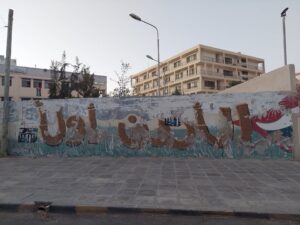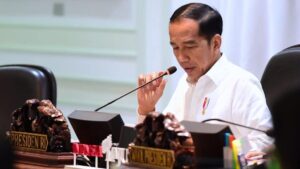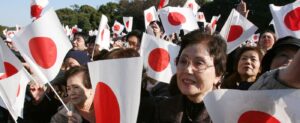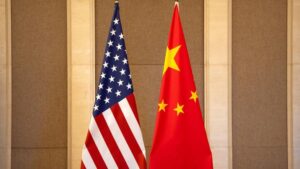We Are Not A Mere Jargon

Ilustrasi anak muda. Foto: pixabay.com.
“. . .When I get older
I will be stronger
They’ll call me freedom
Just like a wavin’ flag…”
– K’naan – Wavin’ Flag
With the capability of having the spirit of enthusiasm, revolution, and political transformation, young people, are the asset of and for the country we live in. To excel, access to education, employment, security, and political participation are important for us.
Well, this is mainly because the emergence of educated, responsible citizen is an essential condition for peace. And that educated, responsible citizen of the future is us, the youth.
However, many of us are still excluded and live in an ambiance of insecurity, fueled by arms conflict, police repression, extremist groups, organized crime, and gender-based violence.
When we advocate for change, we are also often exposed to police violence. The latest development in the West suggests that the police violence will not stop anytime soon. Worse, in some countries, young demonstrators are arrested in large numbers, beaten and killed. Government must consider us as partners in advancing social progress, rather than seeing us as enemy. We are the key players in creating the better world.
“The power of youth is the common wealth for the entire world. The faces of young people are the faces of our past, our present, and our future. No segment in the society can match with the power, idealism, enthusiasm, and courage of the young people.”
– Kailash Satyarthi
We, the youth, are courageous, bold, restless, dynamic, and self-assured. Youth have the thoughts, the inventiveness, and extraordinary vitality in shaping the better world. We are loaded with trust. With the final piece of puzzle being the creative mind, we have the incredible potential producing positive social changes in this blue planet.
We Move against Challenges
The UN World Population Prospect Measurements estimates that there are 1.3 billion of 15-24 years old on the planet, and about one billion live in developing countries, where struggle is bound to occur. But the struggle, rather than slowing us down, should be seen as a challenge that sparks us even more.
As of today, the “youth” even has been seen as a specific social group classification, despite our diversities. We hear the term “millenials” and “gen Z” are being sold everywhere. That, actually, means “the youth” are the ones with more energy and curiosity than the older generations. The ones that care more about the future. We are now considered as agent of change, despite some of them discouraging us.
“We cannot always build the future for our youth, but we can build our youth for the future.”
– Franklin D. Roosevelt
Within the context of the youth itself, only us that understands the battle of ourselves. The battle of getting jobs, of creating a mentally healthy environment, and of getting to understand ourselves in between. This battle should NOT, and I can not emphasize this enough, be handed to the hands of the older generations. Yes, they are now wiser, with more experiences. But the battle of every generation is different. The battle of the youth in 1940s Indonesia, for instance, is different with the 1960s Indonesian youth, let alone the 2020s Indonesian youth.
These different generational problems is the reason why I stated earlier that the government should cooperate with the youth, rather than seeing us as either the enemy, or a reckless animal. Even more so, it’s important to include the youth in legislation process, and governing in general. Despite being younger now, we haven’t seen enough young faces representing young idealism in the parliament. I don’t care about ideology or political spectrum. I believe that if either of the wing is represented by the younger generations, it will create a generally better debates, and hence better outcomes.
But I also understand that governing and legislating is not a process that someone can understand in no time. So I believe that we should be given time to prepare ourselves. We can not, just out of nowhere, run for president. While possible, it can backfire.
Instead, we can start learning by being the network gatherers and harmonious representatives. Let us understand the wilderness, so that we can tame it, rather than being tamed by the wilderness. Yes, the development of the youth abilities may require a focused and long-haul approach, but it’s worth it.
Do Something Outside the Zone
But then again, the question will always arise, “Is it possible that we tackle challenges, create peacefulness, and making history, without being in the government?”
The answer, is of course, yes.
By now, we should probably understand that not everyone can get into the public office. Not that everyone wants it, anyway. So, how can we tackle challenges by being outsiders?
Creating peacefulness can be done through expressions of human experiences. This means exchanging cultures and ideas. By meeting the other person that grew in the other part of the world, that will give us comprehensive understanding about how the world works. Moreover, with exchanging ideas, it will stimulate the inventiveness that we naturally have, and turn it into something more productive.
At last, in embracing those goals, it is additionally significant to stay away from referring the youth as the “The Leaders of Future”. Yes, giving fitting administration settings would almost certainly empower youth to prosper as pioneers today, but that’s not the point. It’s the process of getting there that matters. At the end of the day, we should be treated as pioneers, and not somewhat a future leader.
If I am young and wrong, then you are right. But if I am young and right,
Does my age matter?
– Antigone Aesculus
Ariq Valerian adalah Chief Financial Officer Kontekstual. Ariq adalah lulusan sarjana Fakultas Ekonomi dan Bisnis Universitas Diponegoro. Bisa ditemui di media sosial dengan username @macvalerian (Instagram).
Tulisan ini dibuat dengan kolaborasi bersama Hafizh Mulia, Chief Editor Kontekstual.





